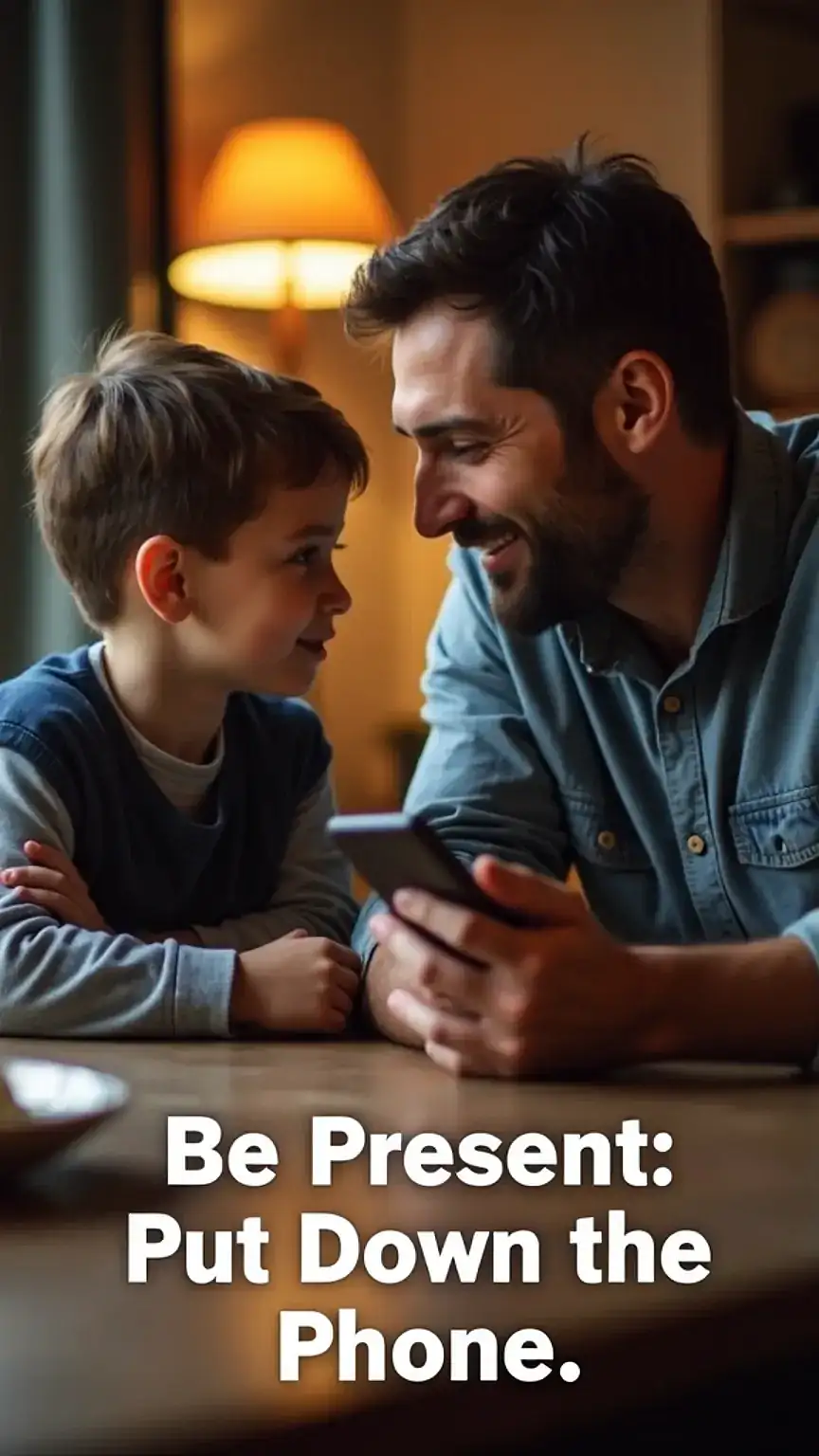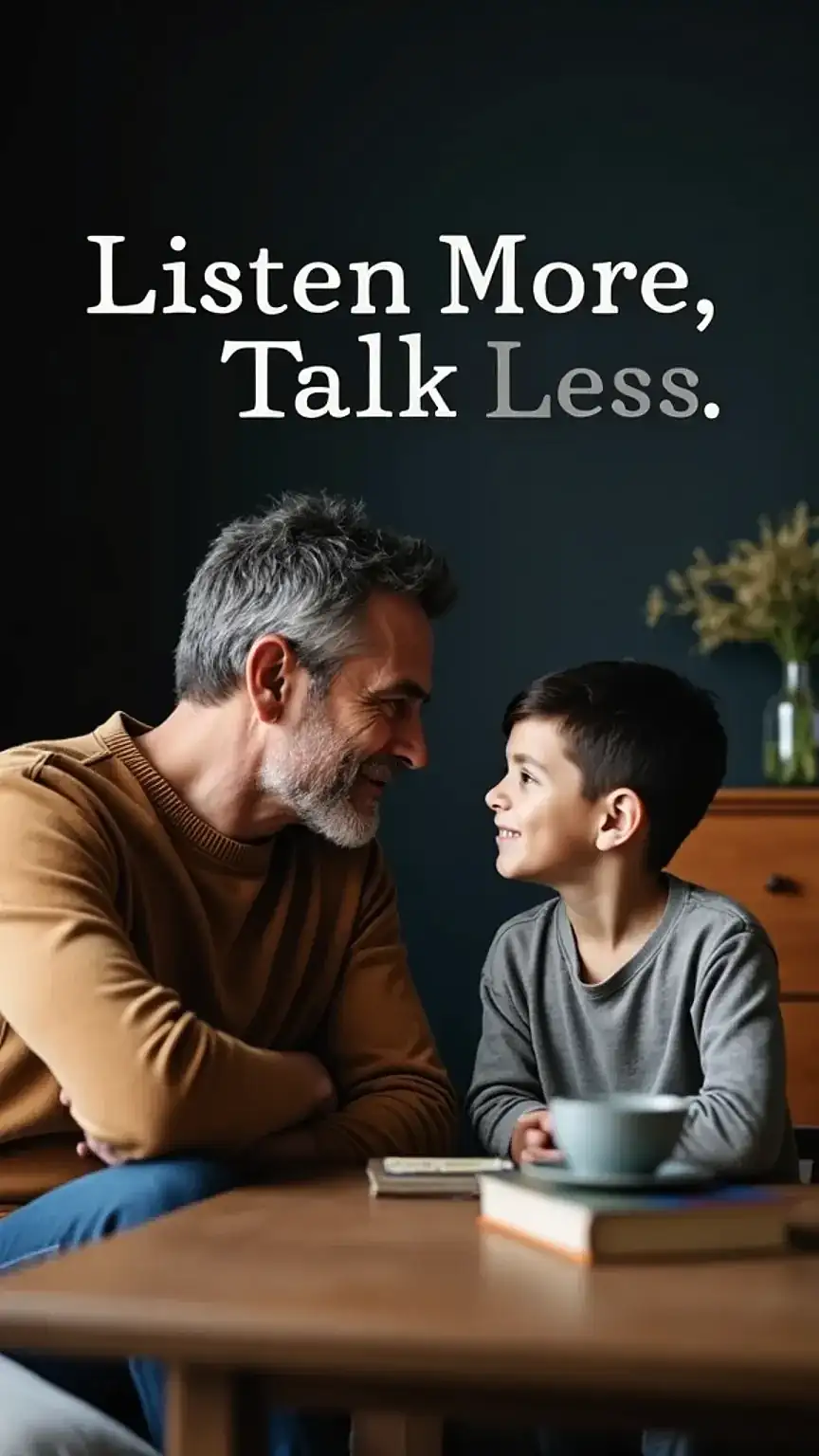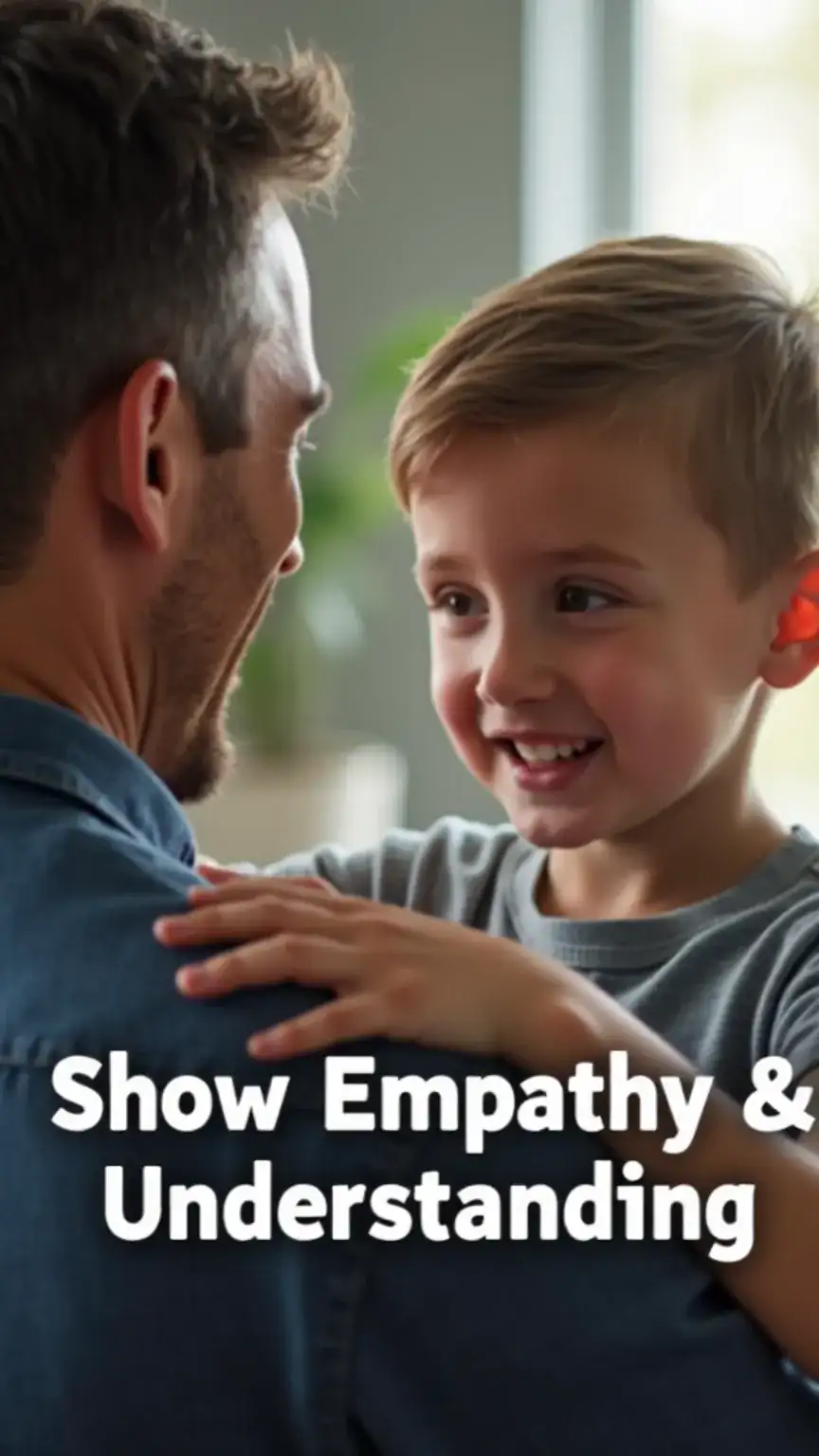Building a strong relationship with your teenager can feel like navigating uncharted territory, especially when the world they inhabit seems light-years away from yours. As a dad who’s been in the trenches, I get it. The constant hum of their digital lives, the ever-shifting slang, the intense emotions that seem to appear out of nowhere – it’s a lot. You might feel like you’re speaking different languages, or worse, that you’re becoming irrelevant.
However, imagine walking into a room where your teenager genuinely wants to talk to you, where they see you not just as a provider, but as a trusted confidant. That’s the goal, right? It’s about fostering a connection that goes beyond homework help and curfew checks. It’s about building a bridge of understanding and mutual respect that will serve them well into adulthood.
This isn’t about being the “cool dad” who knows all the TikTok dances (unless you do, in which case, bravo!). It’s about genuine connection. You’ve got this. Let’s dive into how you can transform those awkward silences into meaningful conversations and build a relationship that feels less like a chore and more like a superpower.
Step 1: Get Familiar with Your Teen’s World
As a guy who’s been there, I know how daunting it can be to connect with your teenager. But trust me, it’s worth the effort. With a little patience, understanding, and humor, you can build a strong relationship with your teen that will last a lifetime.
The first step is to get familiar with your teen’s world. I’m not talking about their social media profiles (although, let’s be real, that’s a great place to start). I’m talking about their interests, hobbies, and passions. This is where the real magic happens.

Take the time to learn what your teen loves. Ask them about their favorite TV shows, movies, music, or sports teams. Show genuine interest and ask follow-up questions to demonstrate your enthusiasm. For example, if they’re into a particular video game, ask them what they like about it. Don’t just nod along; try to understand the appeal.
Furthermore, this isn’t a one-time interrogation. Make it an ongoing conversation. Casually bring up topics related to their interests. You might be surprised by how much they’re willing to share when they feel truly heard. Consequently, these shared interests become natural conversation starters, breaking down barriers.
Moreover, remember that their world is constantly evolving. What’s popular today might be passé tomorrow. Stay curious and open to learning. Think of it as expanding your own horizons, too. You might discover a new band or a fascinating documentary you wouldn’t have otherwise encountered.
Embracing Their Passions: A Deeper Dive
Understanding their passions goes beyond just knowing the names of their favorite artists or games. It’s about appreciating the why behind their interests. What does this game offer them? What message resonates in that song? These insights can reveal a lot about their values and personality.
For instance, if your teen is obsessed with a particular streamer, try watching a few of their videos with your teen. You might find yourself enjoying the commentary or the strategy involved. This shared experience can then lead to discussions about teamwork, competition, or even the ethics of online content creation.
Similarly, if they’re passionate about a certain cause or social issue, take the time to research it yourself. Being able to engage in a thoughtful conversation about topics that matter to them demonstrates respect and validates their concerns. This approach fosters a sense of partnership rather than a top-down directive.
Consequently, you’re not just a parent; you’re becoming a fellow traveler in their world. This shift in perspective is crucial for building genuine rapport.
Step 2: Show Up and Be Present
The next step is to show up and be present in your teen’s life. This doesn’t mean being a helicopter parent or constantly hovering over them. It means being available, attentive, and engaged. Being present is about quality over quantity.

Put away your phone and make eye contact. When you’re spending time with your teen, put away your phone and make eye contact. This will help you stay focused and show your teen that you’re fully present in the moment. It’s a simple act, but it speaks volumes about your respect for them.
Furthermore, actively seek out opportunities to connect. This could be during a car ride, while making dinner together, or simply sitting on the couch. These seemingly mundane moments are often where the most meaningful conversations unfold. Don’t underestimate the power of shared activities.
Similarly, try to be available without being intrusive. Let your teen know that you’re there for them, but also respect their need for space and independence. The goal is to create an environment where they feel comfortable approaching you. They need to know you’re a safe harbor.
Consequently, showing up consistently, even for brief periods, builds trust. It signals that you prioritize your relationship with them, which is a powerful motivator for them to engage with you. Your presence is a statement of your commitment.
The Art of Active Engagement
Being present isn’t just about physical proximity; it’s about mental and emotional engagement. When your teen is talking, resist the urge to multitask. Give them your undivided attention. This means putting down the remote, closing your laptop, and turning your body towards them.
Pro Tip: Make it a point to have at least one “tech-free” conversation with your teen each day. This could be during a meal or a short walk. It’s a powerful way to reconnect without digital distractions.
Moreover, actively listen to what they’re saying, both verbally and non-verbally. Pay attention to their body language, their tone of voice, and the emotions behind their words. Often, what’s left unsaid is just as important as what is spoken. This holistic approach to listening deepens your understanding.
Consequently, when you demonstrate that you are truly present and listening, your teen feels valued. This validation is a cornerstone of any strong relationship. It’s an investment in your connection.
Step 3: Listen More Than You Talk
As a guy, I know it can be tempting to dominate the conversation and share our own stories and experiences. But when it comes to building a strong relationship with your teen, it’s essential to listen more than you talk. This is where true empathy begins.

Ask open-ended questions and listen actively. Ask your teen questions that begin with what, how, or why, and listen actively to their responses. Avoid giving unsolicited advice or interrupting them. Let them lead the conversation.
Furthermore, active listening involves more than just hearing the words. It means processing them, reflecting on them, and responding thoughtfully. Nodding, making eye contact, and offering brief verbal cues like “uh-huh” or “I see” show you’re engaged. Your active participation matters.
Similarly, resist the urge to immediately jump in with solutions or your own anecdotes. Sometimes, teens just need to vent or process their thoughts aloud. Your role is to provide a supportive audience, not necessarily a problem-solver. Let them find their own footing.
Consequently, by prioritizing listening, you create a safe space for your teen to express themselves without fear of judgment or immediate correction. This fosters a sense of trust and encourages them to open up more frequently. They feel safe to be vulnerable.
Mastering the Art of Open-Ended Questions
Open-ended questions are your secret weapon. Instead of asking “Did you have a good day?” (which can be answered with a simple “yes” or “no”), try “What was the most interesting thing that happened at school today?” or “How did you feel about that presentation?” These questions invite detailed responses.
For example, if your teen mentions a conflict with a friend, instead of saying, “Well, you shouldn’t have done that,” try asking, “How did that situation make you feel?” or “What do you think you could do differently next time?” This guides them towards self-reflection.
Moreover, use mirroring and paraphrasing to show you understand. Phrases like “So, if I’m hearing you right, you felt frustrated because…” can confirm you’re on the same page and encourage further explanation. It’s a powerful communication tool.
Consequently, when you listen attentively and ask probing questions, you not only gain insight into your teen’s world but also empower them to develop their own problem-solving skills. This is a win-win scenario.
Step 4: Show Empathy and Understanding
The final step is to show empathy and understanding towards your teen. This doesn’t mean condoning their behavior or excusing their mistakes. It means acknowledging their feelings and validating their experiences. Empathy is about seeing the world through their eyes.

Put yourself in your teen’s shoes. Imagine how they’re feeling and try to understand their perspective. This will help you build trust and strengthen your relationship. Remember what it was like to be their age.
Furthermore, validate their emotions, even if you don’t agree with the situation that caused them. Saying “I can see why you’re upset” or “That sounds really frustrating” can make a huge difference. It communicates that their feelings are legitimate. Your validation is key.
Similarly, avoid minimizing their problems. What might seem like a minor issue to you could feel monumental to your teen. Acknowledge the significance of their struggles from their point of view. Their feelings are real to them.
Consequently, by approaching your teen with empathy, you demonstrate that you are a safe and supportive figure. This fosters a deeper level of trust and emotional connection, making them more likely to confide in you during challenging times. They’ll see you as an ally.
Navigating Difficult Conversations with Grace
Empathy is especially crucial during difficult conversations or when addressing misbehavior. Instead of launching into a lecture, start by acknowledging their feelings. For instance, if they’ve broken curfew, you might start by saying, “I understand you were having fun with your friends, and it’s hard to leave when you’re enjoying yourself.”
Then, transition to the consequences and expectations, explaining the reasoning behind them in a calm and rational manner. This approach is far more effective than an angry outburst. It shows you’re willing to understand before you condemn.
Moreover, remember that teens are still developing their emotional regulation skills. They might experience intense emotions that they don’t yet know how to manage. Your role is to guide them, not to shame them. Offer support as they learn.
Consequently, by consistently demonstrating empathy and understanding, you model healthy emotional processing and build a resilient relationship that can weather any storm. This fosters a lasting bond.

Final Thoughts
Building a strong relationship with your teen takes time, effort, and patience. But the rewards are well worth it. By following these four steps, you can create a deeper connection with your teen and help them become the best version of themselves. It’s a journey, not a destination.
So, what are you waiting for? Start building that relationship today! Share this guide with your buddies and let’s get the conversation started! Encourage other dads to invest in these crucial connections.
Check out our recommended reading list for more parenting tips and advice. You’ll find valuable insights from experts and fellow parents who have navigated similar challenges.





